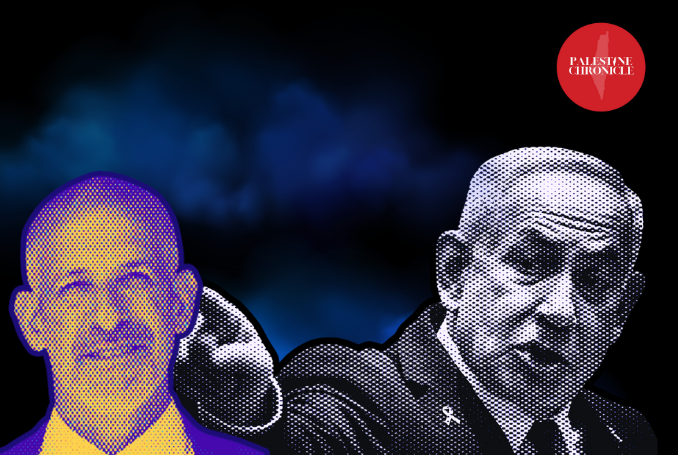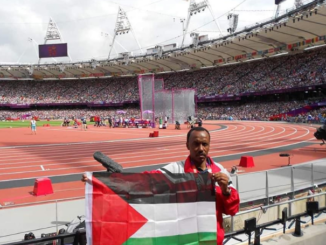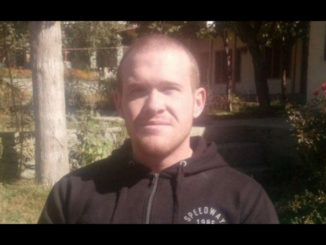
Netanyahu has spent the course of the war clearing out all his rivals, from collapsing the emergency War Cabinet to purging his former Defense Minister and replacing him with an inexperienced loyalist.
Israeli Prime Minister Benjamin Netanyahu’s ongoing feud with the head of his domestic intelligence services (Shin Bet), Ronen Bar, is not only the cause of a series of crises in Israel, but may be directly impacting the course of the Gaza ceasefire negotiations.
In late March, when the Israeli leader decided to sack the head of Israel’s Shin Bet, the move triggered a major conflict between Netanyahu’s ruling coalition and elements of his own intelligence community.
While the Israeli Supreme Court had stepped in to block the decision to dismiss Bar, which had been successfully voted through by the Israeli Knesset, a number of Netanyahu-related scandals began breaking out in the Hebrew media, primarily concerning the Israeli PM’s aides.
Street protests also broke out, backed by the Israeli opposition, and even the former Shin Bet Deputy Chief, Yisrael Hasson, has now surfaced to accuse Netanyahu of refusing to act as a “responsible adult”, also accusing him of requesting that he investigate a leak from the security cabinet. This story, like ‘Qatargate’, is now taking over the Israeli domestic press.
It suffices to say that by firing Ronen Bar, a decision that is being blocked by Israel’s Supreme Court and threatens to drag the government into the judicial realm, has triggered wave after wave of exposés and accusations being levelled at the Israeli leader.
So What Does This Have To Do With Gaza?
Netanyahu decided to collapse the Gaza ceasefire on March 18; what also happened that day is that Itamar Ben-Gvir, who had resigned from his position as Israeli Security Minister in protest of the ceasefire agreement on January 19, returned to his ministerial duties that same day.
Since the beginning of the war on Gaza in October 2023, Netanyahu had been engaged in frequent disputes with the heads of his intelligence agencies, even initially blaming them for the failure to deal with the Hamas-led attack. These tensions had only become more severe over time, especially during the past months.
What relevance does Ben-Gvir have here? Well, in the past, when dealing with national scandals involving his aides, Netanyahu has managed to evade any personal responsibility due to the fact that Shin Bet investigations all dealt with leaked information.
In order for the PM to be held accountable, the Israeli police would have to play a role and find evidence. However, with Ben-Gvir being the Security Minister, the Israeli police have been deterred from launching any such investigations into Netanyahu personally.
So, when the Israeli leader decided to fire the Shin Bet Chief on March 20, less than 48 hours after restarting the war on Gaza, Ben-Gvir was back in his position as Security Minister. This is important for Benjamin Netanyahu’s political survival because he knew that Ben-Gvir would not return to his post if the ceasefire held, and taking on the Shin Bet, in addition to his own courts and political opposition, was too tough a task to fight without the Security Minister on his side.
Netanyahu has spent the course of the war clearing out all his rivals, from collapsing the emergency War Cabinet to purging his former Defense Minister and replacing him with an inexperienced loyalist, to ensuring the new Israeli army Chief of Staff reshapes the military. Now he is going after the Shin Bet chief, who appears to be readying himself to step down within the next two weeks, according to Hebrew media reports.
Netanyahu Used the Settlers to Seize Power
In May of 1996, Netanyahu became Prime Minister of Israel for the first time by beating Labor Party leader Shimon Peres, in what political scientists define as an election that remains “among the most critical” in Israeli history.
As Don Peretz and Gideon Doron wrote in their article for the Middle East Journal, ‘Israel’s 1996 Elections: A Second Political Earthquake?’:
“They were the first with a two-ballot system, one for direct election of the prime minister, and a second for Knesset members. The new system was intended to strengthen the premiership by diminishing its dependence on the bargaining required to form government coalitions. The result, however, was a more factionalized parliament. The two major parties, Labor and Likud, were greatly weakened and, surprisingly, the religious bloc and several new parties, representing ethnic or special interests, gained substantial influence.”
This change to Israel’s political system was first presided over by Netanyahu, who has been in and out of power for nearly three decades now. During this time in office, he has ruled over a range of right-wing parties, movements, and popular figures, carefully calibrating the Israeli socio-political balance to his favor, enabling him to remain in power.
Although Netanyahu had bowed out of politics following his defeat in the 1999 elections, he returned to power in 2009. Up until 2018, when Israel would undergo a political hurricane which triggered five elections in less than four years, the Israeli premiership had remained firmly within Netanyahu’s grip.
However, after briefly losing his position to a power-sharing coalition in 2021, which allowed for Yair Lapid and Naftali Bennett to serve as Prime Minister, he decided to work with religious-hardline groups once considered too radical for the Knesset, in order to reclaim control of the government.
The Israeli PM long maintained ties to various figures within the Israeli settler movement, but up until the last election cycle, they had never been a primary factor when it came to forming a coalition government. In fact, the religious extremist Michael Ben-Ari, who used to rule the Otzma Yehudit Party, prior to Ben-Gvir taking his place, was banned from assuming a seat in the Knesset in 2019.
Come 2022, Otzma Yehudit would form an alliance with the head of the Religious Zionism Party, headed by Bezalel Smotrich, in order to become the party with the second-largest number of seats in the coalition government. If Netanyahu were to remove the Religious Zionism bloc from his coalition, it would collapse, so they are essential to his political survival.
Impacts on The Ceasefire
If we look at Israel’s continuation of its genocidal assault on Gaza, it is clear as day that there is no actual military plan to achieve any specific objectives. The Israeli government speaks in vague terms about “crushing Hamas” and returning its captives by force, neither of which it is even close to achieving.
Instead, knowing that their army is exhausted, that over 100,000 reservists are refusing to show up for duty, and without any coherent strategies, Israel is simply committing murder for murder’s sake.
The current “strategy” is simply to cut off all aid – collectively punishing the civilian population with a seven-week shut off of all humanitarian food and medical aid – while massacring civilians daily and ordering evacuations of neighborhoods with no strategic purpose. Instead of taking the fight to the Palestinian resistance groups, the Israeli army remained primarily in guarded areas and open lands.
Then we occasionally hear the genocidal ramblings of the Israeli senior leadership, combined with pledges to ethnically cleanse Gaza, or annex it, or to reoccupy parts of the territory, or to rebuild settlements. Each “plan”, just as racist and psychopathic as the last, contradicts the former.
Netanyahu, in his purge of all opposing voices from within, also decided to strip the power from the Shin Bet and Mossad – who had been leading the ceasefire negotiation efforts – placing the responsibility for leading the Gaza ceasefire/prisoner-exchange file under the control of his close aide, Ron Dermer.
In other words, the Israeli PM has full control in order to stall the negotiations for as long as he chooses, until he sees it as politically viable for him to strike another deal, which he will also determine when to break.
Understanding Netanyahu’s agenda and his domestic battles is crucial in being able to predict when a ceasefire agreement will be possible. While the Trump administration may have a say, it is unlikely that it will oppose the Israeli PM when he is embroiled in political turmoil; after all, Donald Trump has already demonstrated that he will violate his own constitution in order to silence critics of Israel. Therefore, expecting him to suddenly stand up to Netanyahu will result in disappointment.
(The Palestine Chronicle)

– Robert Inlakesh is a journalist, writer, and documentary filmmaker. He focuses on the Middle East, specializing in Palestine. He contributed this article to The Palestine Chronicle.








Be the first to comment